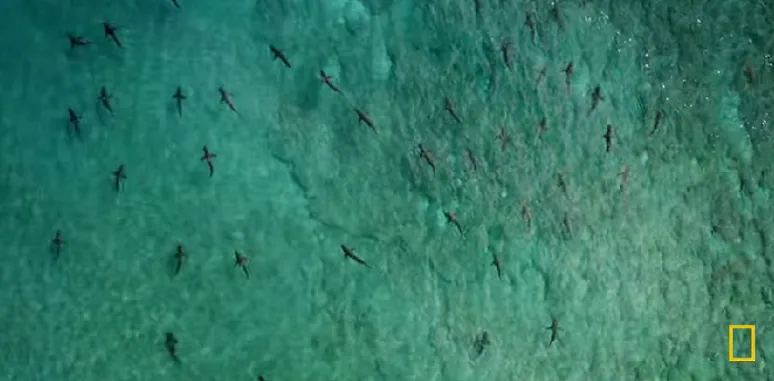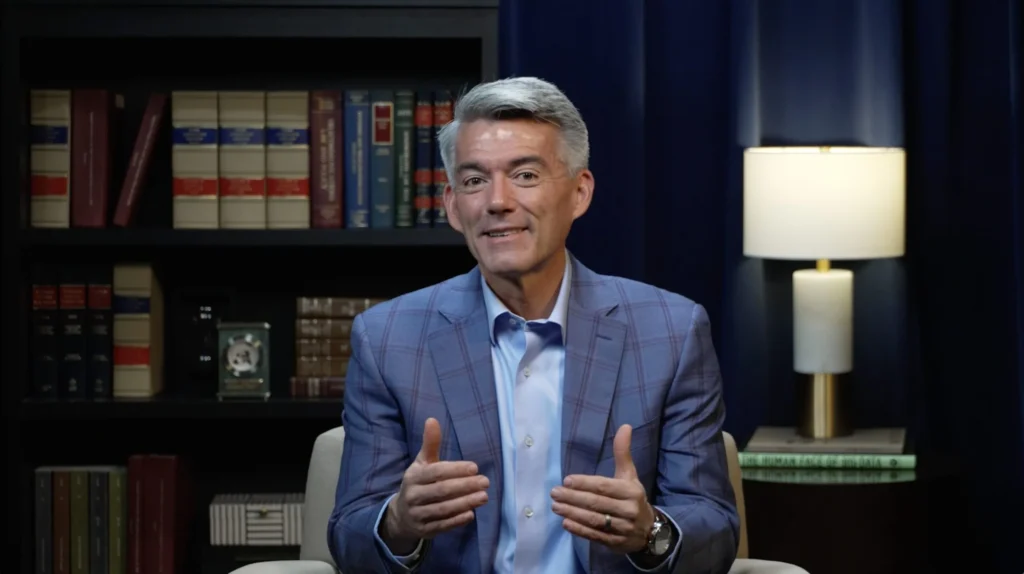July brings with it hot summer weather, swimming pools, beaches, and … SHARKS! Thanks to cable TV networks like Warner Bros. Discovery and National Geographic, people around the world have learned more about these fascinating underwater creatures and dispelled many myths that have given them a bad reputation. Warner Bros. Discovery was a pioneer when it began its robust programming around sharks over three decades ago with its production of SHARK WEEK, which has turned into a cultural phenomenon. SHARK WEEK premieres its 34th annual production on July 24, and Warner Bros. Discovery continues to produce compelling and educational content around the event that NCTA has covered over the past few years. Meanwhile, National Geographic is celebrating 10 years of its annual SharkFest production, which kicked off last week. At the Television Critics Association press tour earlier this year, producers behind National Geographic’s SharkFest talked about how the push at the network to bring more diverse faces and voices to the table around the programming event has been a huge priority in its quest to effect change in the shark sciences world.
“We have worked really hard within Nat Geo and also Disney to really bring in diverse voices and scientists,” said Janet Van Vissering, National Geographic senior vice president of development and production. “When kids and the future do see us, they’ll see that there is a path. There is a seat at the table, and that’s probably one of my proudest moments in celebrating this year’s 10th anniversary of “SharkFest” is that there are different voices. There are more voices, and I’m really committed, and our company is committed to continuing that effort for ten more years.”
Last year, National Geographic established a partnership with Minorities in Shark Sciences, an organization that seeks to encourage women and people of color to break down barriers in the shark sciences, to ramp up its own efforts to spotlight diversity on air and behind the scenes on SharkFest. Experts at MISS are featured throughout SharkFest’s programming offering their deep knowledge of the field, their own personal stories, and their important but often underrepresented perspectives. Candace Fields, a Bahamian, is one of those experts, who shared at TCA that while she loved watching shark programming on TV throughout her youth, she found few people who looked like her. Fields is a shark conservationist and advocate for the protection of sharks and rays in the Bahamas.
“I kind of realized the lack of representation and the need to fill that void. And I think not only the passion for sharks inspired me to get involved and to start doing work related to the conservation but also to kind of be a voice, be a Black female in that world,” said Fields. “Most of these shows, almost every show has a component of the Bahamas. And, equally, almost every show has no Bahamians. And so I want to be that person to be the representative because at the end of the day, it matters. Representation matters, and seeing somebody from the place speak about it is I think crucial.”
Sara Casareto, an ocean conservationist also featured in SharkFest, also discussed that the goals around an event like SharkFest are about giving people better opportunities to learn and respect the shark sciences, especially those who may have gotten the wrong idea about them through watching movies like “Jaws.” While entertaining, they don’t arm audiences with the truth about sharks and marine life, according to the panelists. This also extends to the lack of representation in movies, documentaries, and shows in the shark genre, which SharkFest wants to change, the panelists added.
“‘SharkFest’ is bringing on scientists, it’s bringing on women, it’s bringing on people of color, so people all around are going to be able to see someone who looks like them talking about something that maybe they’ve never seen or they get to see, and they can learn to love it and be like, ‘Oh, I can do that,’ or, ‘This person is doing something that I think is super cool. How can I learn more about it, and also play a role in it,'” said Casareto.
National Geographic’s SharkFest is ongoing through August 7.








